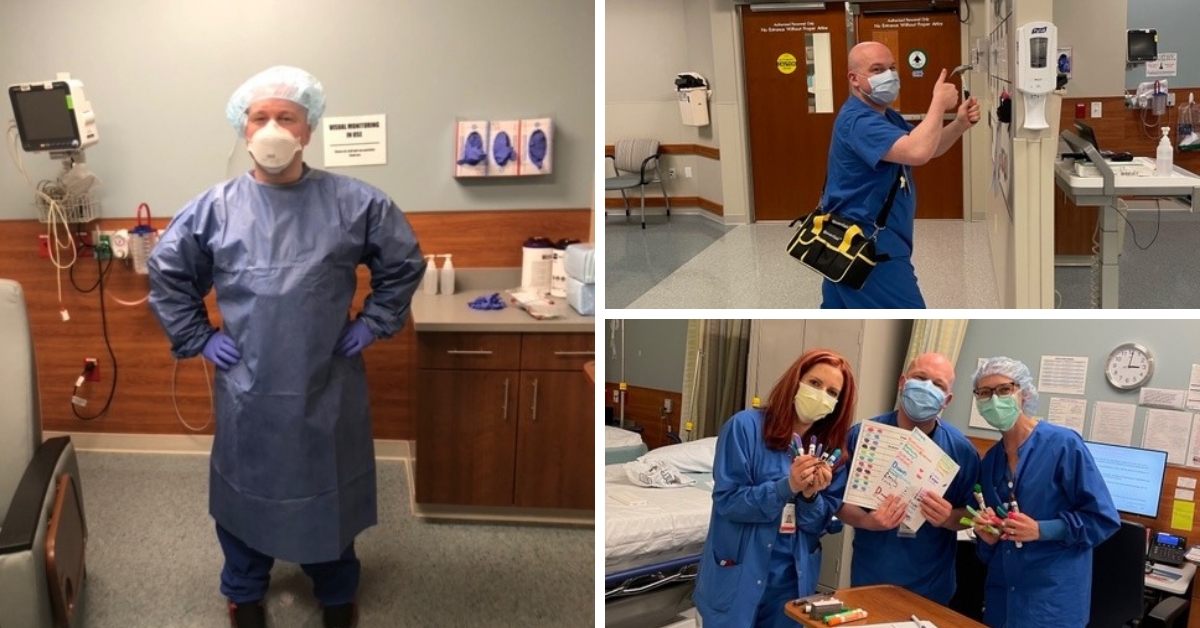It's the time of year when everyone is thinking about New Year's Resolutions and having goals for the coming year. Setting goals for the New Year promotes a positive atmosphere and encourages a team outlook at your ASC. Naturally, you want your goals for 2022 to also create positive surgical outcomes. But how do you determine a tangible goal or set of goals for your Ambulatory Surgery Center?
Want to stay in the know on the latest ASC tips and topics?
Recent Posts
Looking for Something?
Categories
- ASC (82)
- ambulatory surgery center (82)
- video (36)
- nurse guide (29)
- patient communication (27)
- patient satisfaction (27)
- covid19 (26)
- surgical facility (25)
- business and finance (22)
- technology (22)
- patient engagement (19)
- ambulatory software (18)
- pre-admissions (16)
- Case Study (14)
- ambulatory surgery center software (11)
- outpatient surgery (11)
- culture of safety (10)
- complex cases (8)
- or volume (8)
- administrator (7)
- employee satisfaction (7)
- infection control (7)
- outpatient surgery software (7)
- risk management (7)
- solutions (7)
- cardiac (6)
- disinfect (6)
- patient tracking (6)
- postop (6)
- total joint (6)
- document management (5)
- implementation (5)
- patient survey (5)
- surgery scheduling (5)
- ASC Everyday Heroes (4)
- hiring (4)
- job security (4)
- payment plan (4)
- preop (4)
- scheduling (4)
- security (4)
- surgery center (4)
- women in healthcare (4)
- ASC booking (3)
- CMS (3)
- CMS requirements (3)
- Derek's Corner (3)
- best practices (3)
- data integration (3)
- everyday heroes (3)
- outpatient surgery center (3)
- patient registration (3)
- preop nurse (3)
- revenue (3)
- senior patients (3)
- specialty procedures (3)
- texting (3)
- vendor management (3)
- ASC quality reporting (2)
- Accreditation (2)
- GI (2)
- ambulatory surgery center surveys (2)
- burnout (2)
- cancellations (2)
- clinical (2)
- cost (2)
- digital chart storage (2)
- healthcare consumerism (2)
- hygiene (2)
- new hire (2)
- patient charts (2)
- patient risk (2)
- payments (2)
- screening (2)
- sleep study (2)
- time management (2)
- 2021 (1)
- 4 tips (1)
- Accredited (1)
- Billing (1)
- ERAS (1)
- One Mnet Health (1)
- SaaS (1)
- capnography (1)
- certfication (1)
- colonoscopy (1)
- conscious sedation (1)
- corona virus (1)
- customer spotlight (1)
- diagnosis (1)
- elderly patients (1)
- endo (1)
- intubation (1)
- laryngoscopy (1)
- marketing (1)
- obesity (1)
- online pre-admissions (1)
- outsourcing (1)
- patient (1)
- patient finance (1)
- patient satifaction (1)
- payment (1)
- personalized care (1)
- physician offices (1)
- pricing (1)
- recovery (1)
- sleep apnea (1)
- staff burden (1)
- staffing shortage (1)
- surgery center management software (1)
- top 12 (1)
- vendor communication (1)
- vendors (1)
In December, having a surgical procedure is particularly stressful because most people are trying to get ready for the holidays. The added stress of preparing for Christmas, Hanukkah, or Kwanzaa can make going to an ASC even more difficult. Be sure your Ambulatory Surgery Center puts some fun holiday traditions in place to alleviate some of this. Creating a cheerful, holiday environment will help alleviate some of your patients' stress and contribute to a pleasanter working atmosphere for your staff.
The second feature in our Women in Healthcare series goes to Lauren Illescas, COO at Mnet Health. Learn more about Lauren and how women are uniquely positioned in the healthcare industry and assist with driving operations efficiently.
Even the best Ambulatory Surgery Centers face moments of adversity. Some of these may be adverse patient events, negative publicity, or a serious illness or loss by a staff member that impacts the team. While some adverse events aren’t under anyone’s control, others may need to be handled appropriately by management to minimize the ripple effect of negative outcomes. When adverse events occur, your ASC's recovery will hinge on several factors, including the resiliency of your employees and how your facility handles these events internally.
The patients at your ASC are your most valuable asset. Without individuals turning to your Ambulatory Surgery Center for procedures, you'd be out of business. When patients use your facility, it's vital to foster loyalty and thank them for using your ASC. At this time of year, when everyone is more rushed, it’s particularly important to show your patients how thankful you are for them.
The end of the year is approaching, when many patients have fully paid their insurance deductibles. They often use this time to fit in any covered medical treatments and surgeries before the end of the year. It's natural to want to have a surgical procedure done in the last few months of the year when it is entirely covered by insurance, but it can overwhelm your ASC with patients trying to schedule at the last minute. Your staff will be fielding many phone calls, trying to maximize scheduling without impacting patient care, and coping with additional billing and insurance issues. Make sure your Ambulatory Surgery Center is prepared for the onslaught.
In July 2021, One Medical Passport announced the second round of the ASC Everyday Heroes Program. The program was created in 2020 to not only give back to the ASC community, but to recognize, honor, and reward the remarkable outpatient surgery professionals who have gone above and beyond their role and touched the lives of so many.
Since the 1900s, growth in healthcare has been driven by women, who make up 80% of the overall growth in health services. Since 2000, the number of people in full-time healthcare positions has increased from five million to nine million (U.S. Census Bureau). Three-quarters of those workers are women. To put it frankly, your health is in women’s hands.
The financial success of any Ambulatory Surgery Center depends first and foremost on providing excellent healthcare at a reasonable price, but that's an oversimplification. Some ASCs maintain a healthy profit margin while others continually struggle to maintain a solid financial status despite offering similar services with similar results. Often, the difference falls with how things are handled outside the realm of care itself. It's more about how payments are addressed, the status of their managed care contracts, or how well they market themselves to patients.











